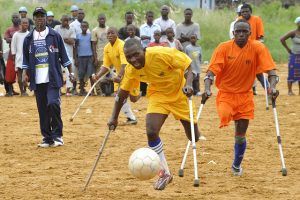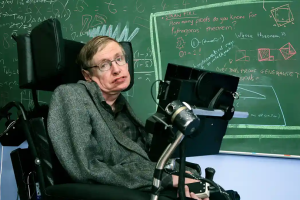For many people with disabilities and those who care for them, daily life may not be easy. People with disabilities need health care and health programs for the same reasons anyone else does—to stay well, active, and a part of the community.
Having a disability does not mean a person is not healthy or that he or she cannot be healthy. Being healthy means the same thing for all of us—getting and staying well so we can lead full, active lives. That means having the tools and information to make healthy choices and knowing how to prevent illness.
For people with disabilities, it also means knowing that health problems related to a disability can be treated. These problems, also called secondary conditions, can include pain, depression, and a greater risk for certain illnesses.
To be healthy, people with disabilities require health care that meets their needs as a whole person, not just as a person with a disability. Most people with or without disabilities can stay healthy by learning about and living healthy lifestyles.
Leading a Long and Healthy Life
Although people with disabilities sometimes have a harder time getting and staying healthy than people without disabilities, there are things we can all do to get and stay healthy.
Tips for leading a long and healthy life:
- Be physically active every day. Learn about physical activity.
- Eat healthy foods in healthy portions. Learn about nutrition.
- Don’t get too much sun. Learn about preventing skin cancer.
- Get regular checkups. Learn what health services and screenings may be good for you.
- Don’t smoke. Learn how to stop smoking.
- Use medicines wisely. Learn about medication safety.
- If you drink alcoholic beverages, drink in moderation. Learn about alcohol.
- Get help for substance abuse. Find treatment services near youexternal icon.
- Stay in touch with family and friends.
- If you need help, talk with your health care professional.










Recent Comments